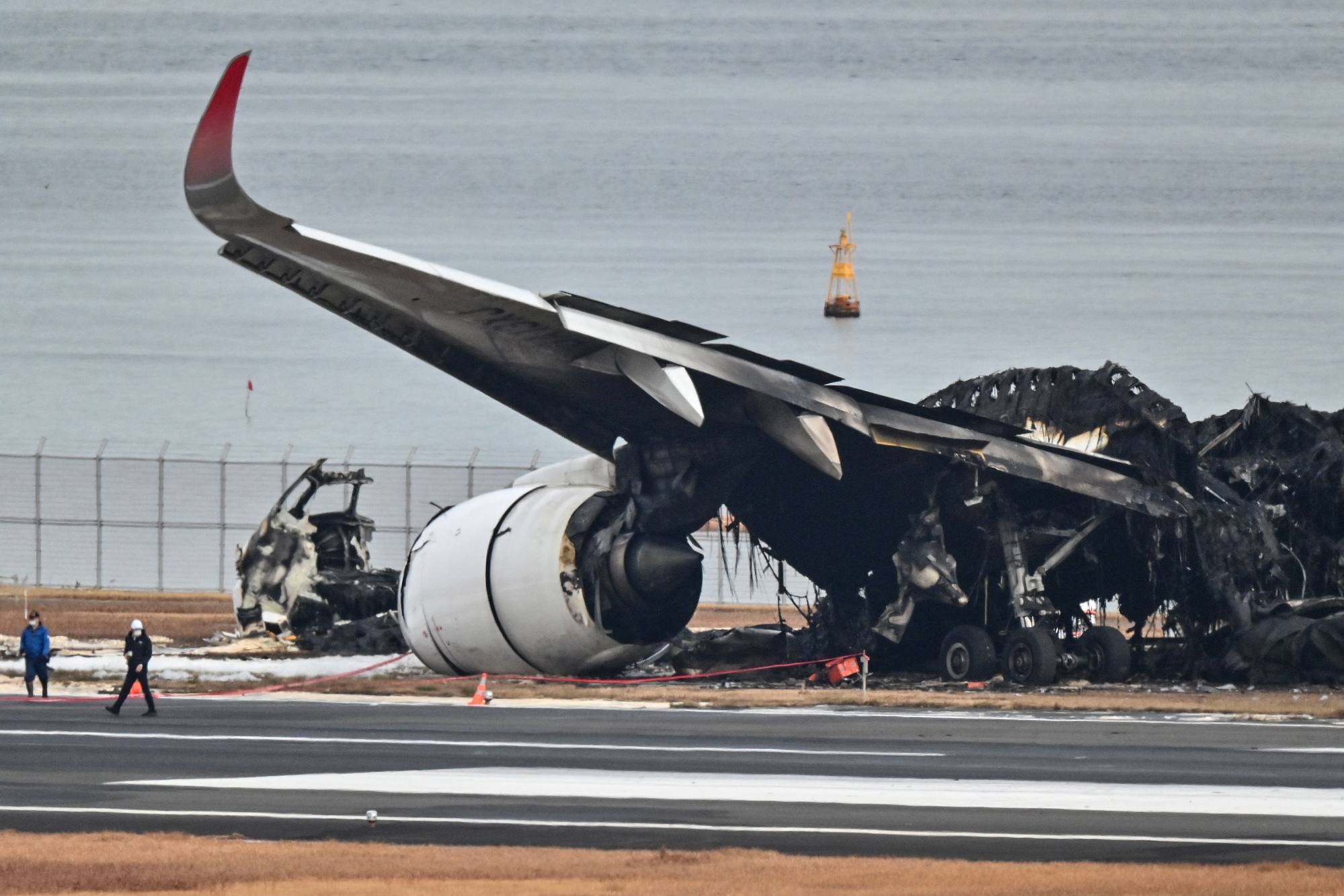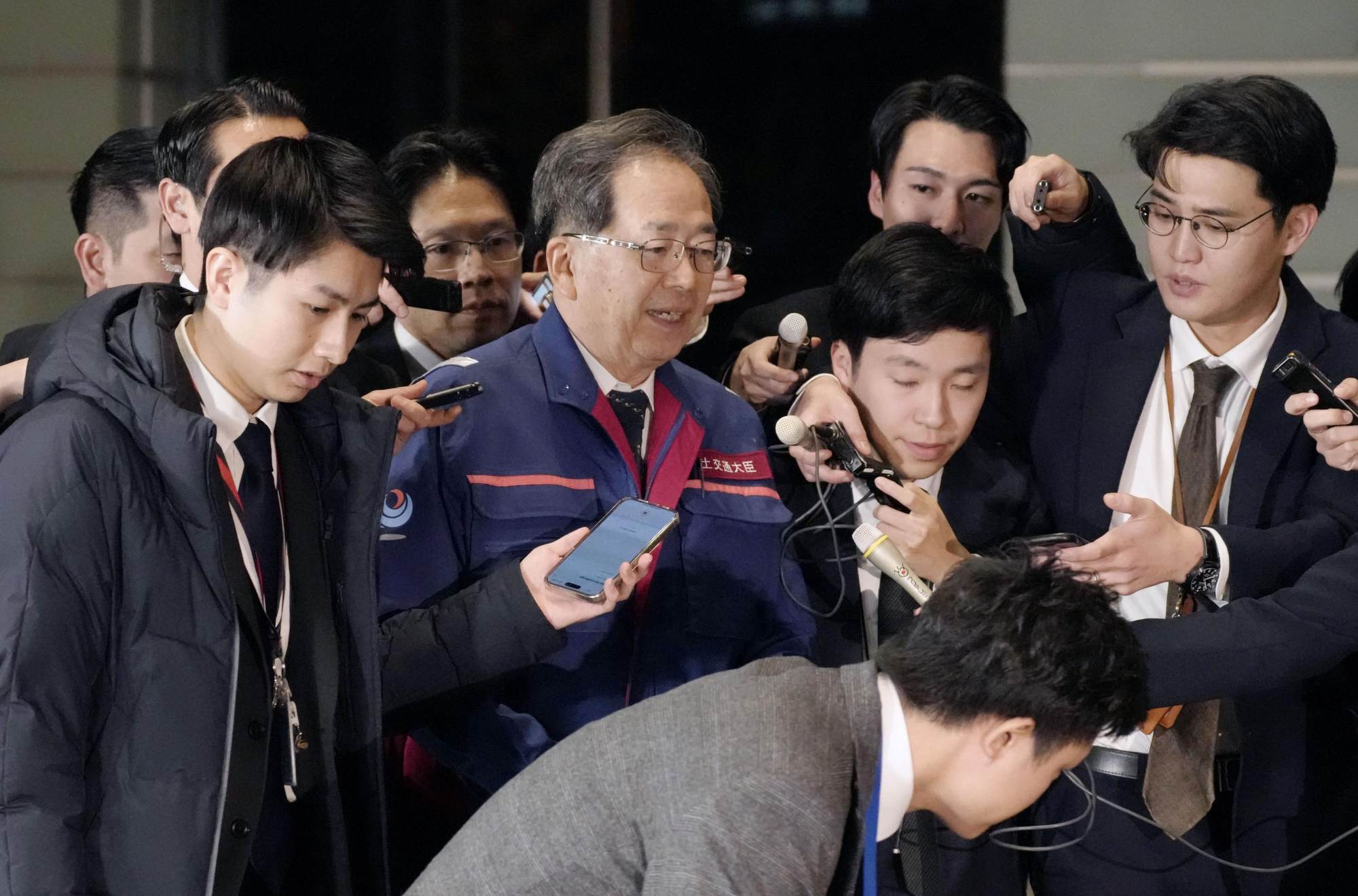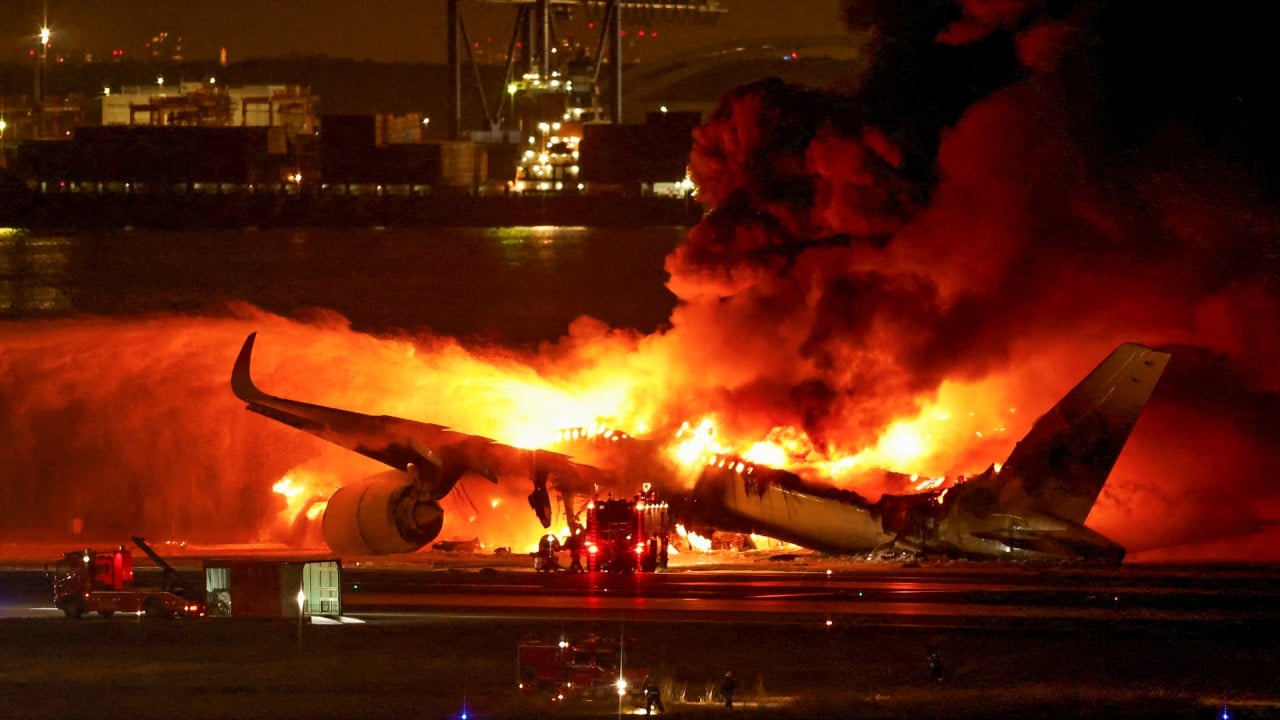Authorities have only just begun their investigations and there remains uncertainty over the circumstances surrounding the incident, including how the two aircraft ended up on the same runway.

The Transport Ministry released a transcript of air traffic control communication of about 4 minutes and 27 seconds just before the crash. It showed no clear take-off approval for the coastguard plane. According to the text, the Tokyo air control gave the JAL Airbus A350 permission to land on Runway C, noting that there is a departing plane, with the JAL pilot repeating the action.
The coastguard plane said it was taxing to the same runway, and the traffic control instructs it to proceed to the stop line ahead of the runway. The controller noted the coastguard gets the departure priority, and the pilot said he was moving to the stop line.
Their communication ends there. Two minutes later, there was a three-second pause, apparently indicating the time of the collision.
The captain of the coastguard plane said he had entered the runway after receiving permission, a coastguard official said, while acknowledging that there was no indication in the transcripts that he had been cleared to do so.
Police began a separate probe into possible professional negligence. Tokyo police said that investigators examined the debris on the runway and were conducting interviews.
“The transport ministry is submitting objective material and will fully cooperate with the … investigation to ensure we work together to take all possible safety measures to prevent a recurrence,” Transport Minister Tetsuo Saito told reporters.
The JTSB has recovered the voice recorder from the coastguard aircraft, authorities said.
Meanwhile, Tokyo police are investigating whether possible professional negligence led to deaths and injuries, several media, including Kyodo and the Nikkei business newspaper, said.
There’s a strong possibility there was a human error
Police set up a special unit at the airport to investigate and planned to interview those involved, a spokesperson said, but declined to say if they were examining the negligence concerns.
“There’s a strong possibility there was a human error,” said aviation analyst Hiroyuki Kobayashi, who is a former JAL pilot.
“Aircraft accidents very rarely occur due to a single problem, so I think that this time too there were two or three issues that led to the accident.”
In a statement on Wednesday, JAL said the aircraft recognised and repeated the landing permission from air traffic control before approaching and touching down.

All passengers and crew were evacuated within 20 minutes of the crash, but the aircraft, engulfed in flames, burned for more than six hours, the airline said.
The coastguard aircraft, one of six based at the airport, had been due to deliver aid to regions hit by Monday’s earthquake of magnitude 7.6 that has killed 64, while survivors face freezing temperatures and prospects of heavy rain.
The accident forced the cancellation of 137 domestic, and four international, flights on Wednesday, the government said.
But emergency flights and high-speed rail services have been requested to ease the congestion, Transport Minister Saito said.


